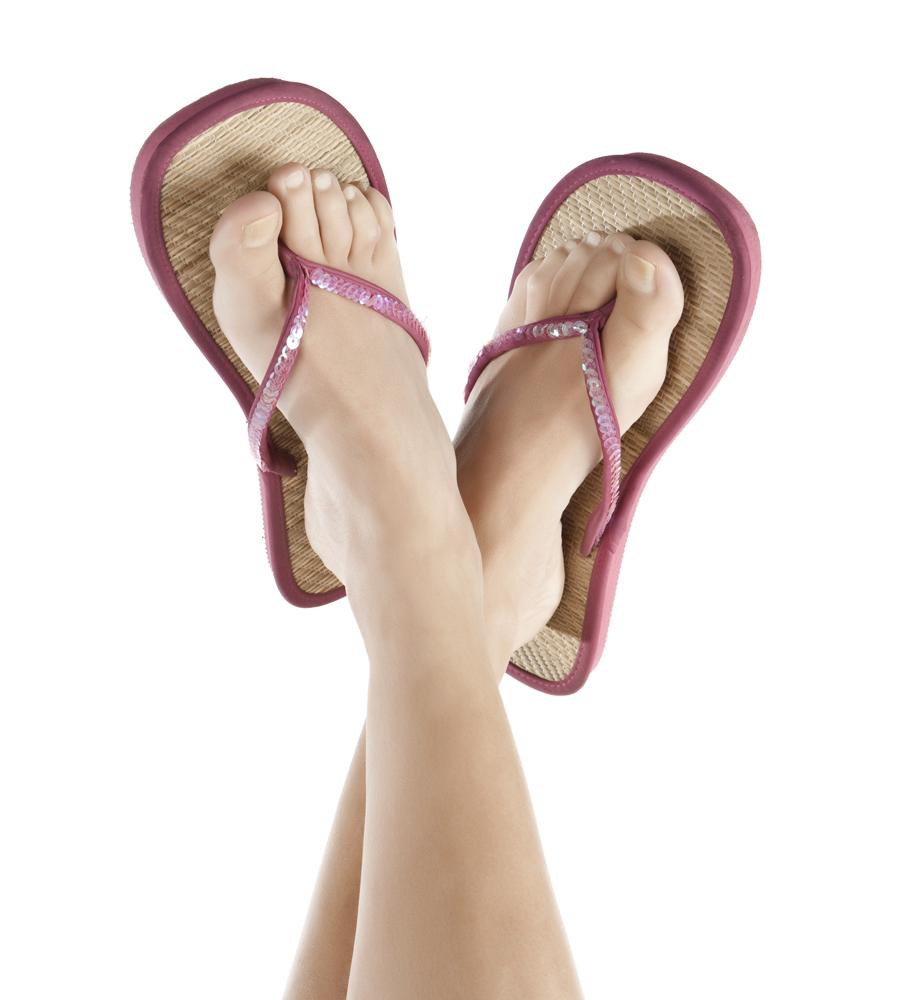 Many people find it appealing to wear flip flops during the warm months. Despite being generally inexpensive and easy to slip into, they can cause damage to the feet. Ankle sprains are common when flip flops are worn, and this happens as a result of minimum support that this type of shoe offers. Additionally, the style of walking is altered as the toes grasp the front of the shoe in order to keep them on. Research has indicated there are specific types of flip flops that may have more support than others. These include shoes that have an outer sole that is stable and lightweight, which aids in providing adequate shock absorption. Choosing a shoe that has a strap typically helps the foot to stay in place. If you are interested in wearing flip flops, it is suggested that you consult with a podiatrist who can guide you in choosing the right shoe.
Many people find it appealing to wear flip flops during the warm months. Despite being generally inexpensive and easy to slip into, they can cause damage to the feet. Ankle sprains are common when flip flops are worn, and this happens as a result of minimum support that this type of shoe offers. Additionally, the style of walking is altered as the toes grasp the front of the shoe in order to keep them on. Research has indicated there are specific types of flip flops that may have more support than others. These include shoes that have an outer sole that is stable and lightweight, which aids in providing adequate shock absorption. Choosing a shoe that has a strap typically helps the foot to stay in place. If you are interested in wearing flip flops, it is suggested that you consult with a podiatrist who can guide you in choosing the right shoe.
Flip-flops can cause a lot of problems for your feet. If you have any concerns about your feet or ankles, contact one of our podiatrists from Active Foot and Ankle Care, LLC. Our doctors will assist you with all of your foot and ankle needs.
Flip-Flops and Feet
Flip-flops have managed to become a summer essential for a lot of people. While the shoes may be stylish and easy to slip on and off, they can be dangerous to those who wear them too often. These shoes might protect you from fungal infections such as athlete’s foot, but they can also give you foot pain and sprained ankles if you trip while wearing them.
When Are They Okay to Wear?
Flip-flops should only be worn for very short periods of time. They can help protect your feet in places that are crawling with fungi, such as gym locker rooms. Athlete’s foot and plantar warts are two common fungi that flip-flops may help protect your feet against.
Why Are They Bad for My Feet?
These shoes do not offer any arch support, so they are not ideal for everyday use. They also do not provide shock absorption or heel cushioning which can be problematic for your feet. Additionally, you may suffer from glass cuts, puncture wounds, and stubbed toes since they offer little protection for your feet.
More Reasons Why They Are Bad for Your Feet
- They Slow You Down
- May Cause Blisters and Calluses
- Expose Your Feet to Bacteria
If you have any questions, please feel free to contact our offices located in Fair Lawn, Riverdale, and Englewood, NJ . We offer the newest diagnostic and treatment technologies for all your foot care needs.






